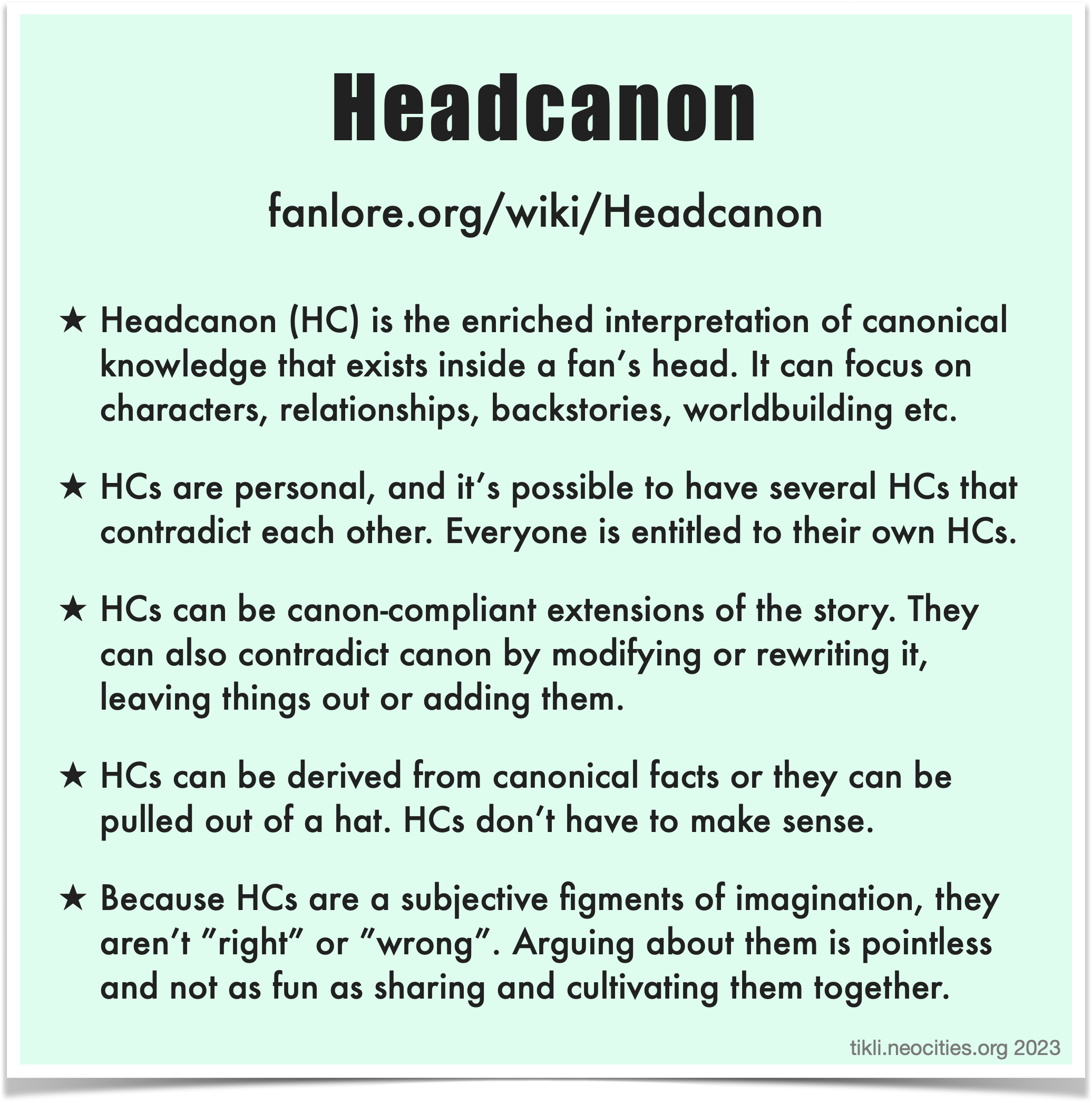Fandom Vocabulary
Vocabulary by tikli.
Page last updated on 21 July 2023 [change log].
A collection of Fandom Vocabulary infographics I've made.
You are free to repost / share these without asking me for permission beforehand, because information is meant to be spread. Crediting is appreciated, but not necessary, because my website URL is on the bottom right corner of each note.
Squick
fanlore.org/wiki/Squick
- Squick is basically the opposite of kink.
- It’s used for describing a deep-seated, visceral turn-off.
- Squick is a neutral word that describes your personal emotional reaction to something without judging the thing itself or the people who like it.
- Squick is not the same as a trigger. It’s just something you are not interested in reading/seeing, because it makes you feel things you’d rather not feel.
- Squick is both a noun and a verb.
”That’s my squick, so I don’t read anything portraying it.”
”This fic had some of my squicks in it, so I noped out.”
”No, I don’t want to watch that, it squicks me.”
”This fic squicked me out so bad!.”
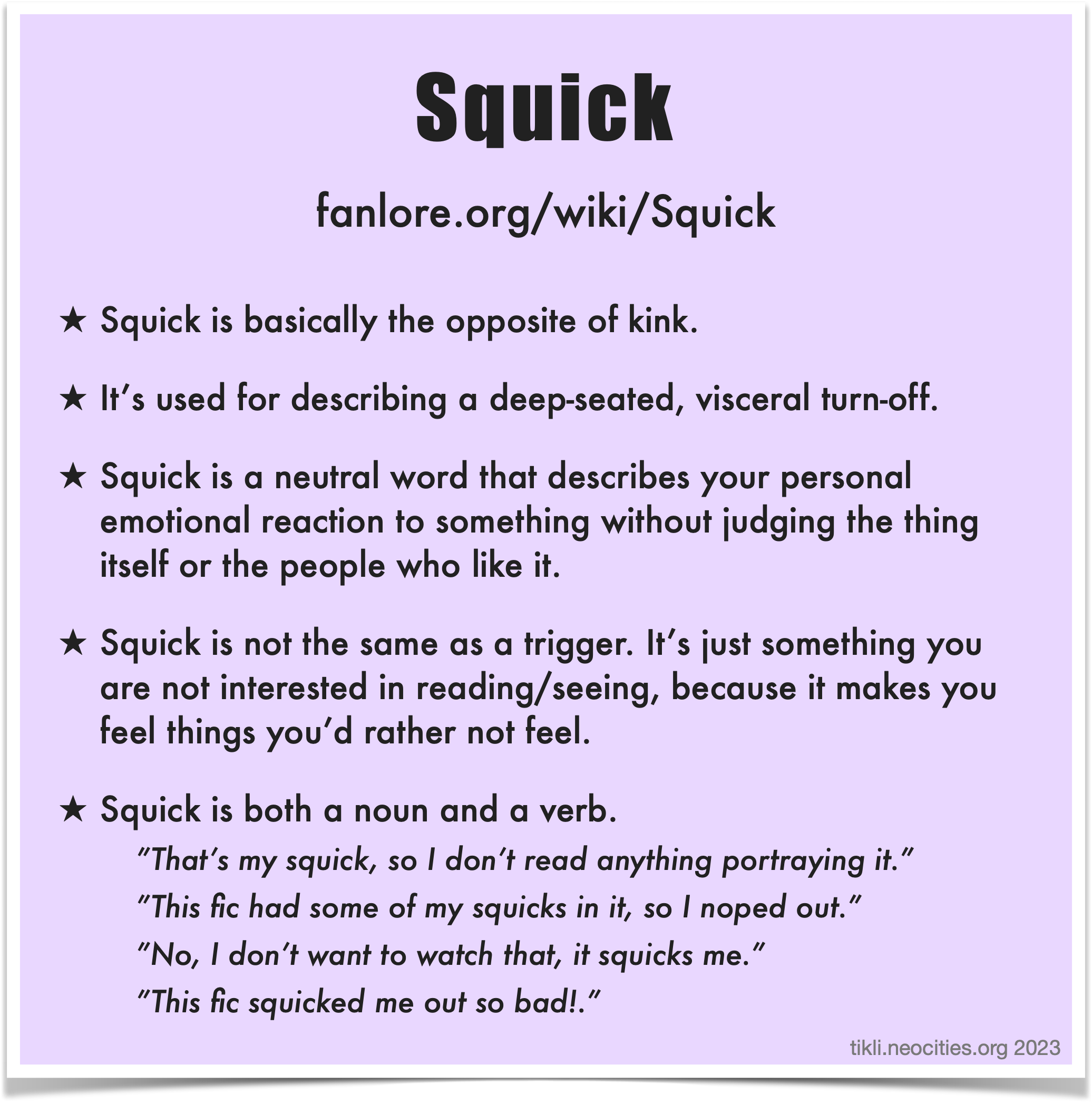
FanPol
fanlore.org/wiki/Fanpol
- FanPol, or Fandom Police, refers to people who think they have the right to control other people’s fandom activities based on things they personally dislike or find weird.
- FanPol believe that transgressive fiction and works with taboo subject matters can cause actual harm to real people and should therefore be censored.
- FanPol judge people based on what sort of fictional works they like or create, believing that people’s taste in fiction aligns with their real life behaviour.
- FanPol see harassment and bullying as useful tools when it serves their agenda to get rid of content they don’t approve.
- FanPol behaviour is typical to anti-shippers (fanlore.org/wiki/Anti-shipper).
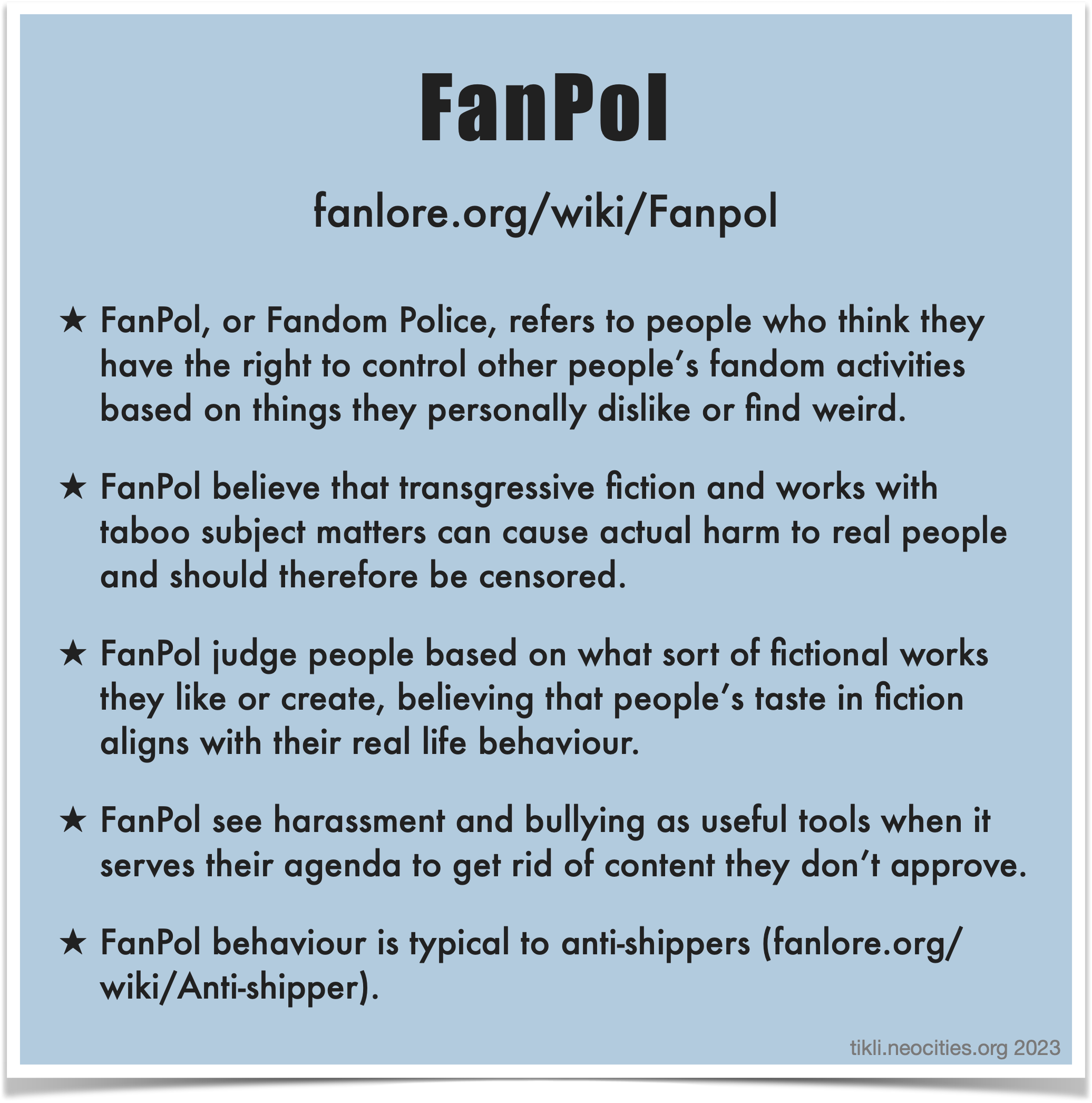
Pro-shipper
fanlore.org/wiki/Anti-anti
- ”Pro” is a prefix, not short for ”problematic”.
- Pro-shipping was the common mindset in the fandom before the anti-shippers started arguing against it.
- Pro-shippers separate fiction from reality. They believe that fictional content alone does not affect what real people do in the real world.
- Pro-shippers believe that people can’t be judged based on their taste in fiction or the fictional things they create.
- Pro-shippers believe that fictional content should not be censored, not even when it includes taboo subject matters.
- Pro-shippers are against harassing people over fictional things.
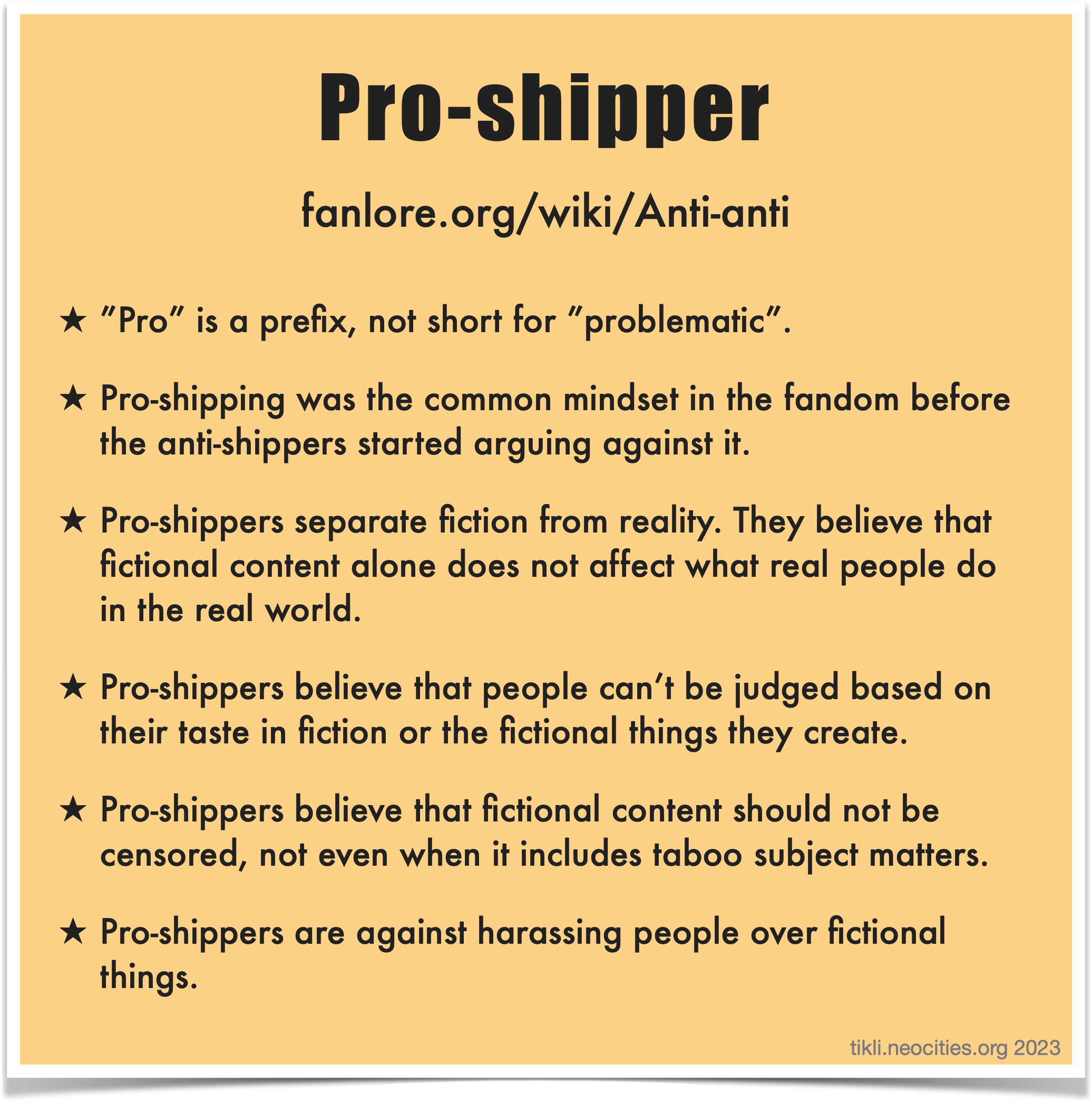
Addendum:
- “Pro” is a prefix, and it means “supporting”.
- The belief that fictional content alone does not affect what real people do in the real world means that a work of fiction alone does not cause people to act against their own will.
- The belief that people can't be judged based on their taste in fiction or the fictional things they create means that creating or consuming a piece of fiction is not concrete evidence for anything.
- If you are convinced that fictional sex scenes between adults and minors are illegal, and people who create or consume that content are pedophiles, please explain why fictional descriptions of murder and violence are not treated the same way.
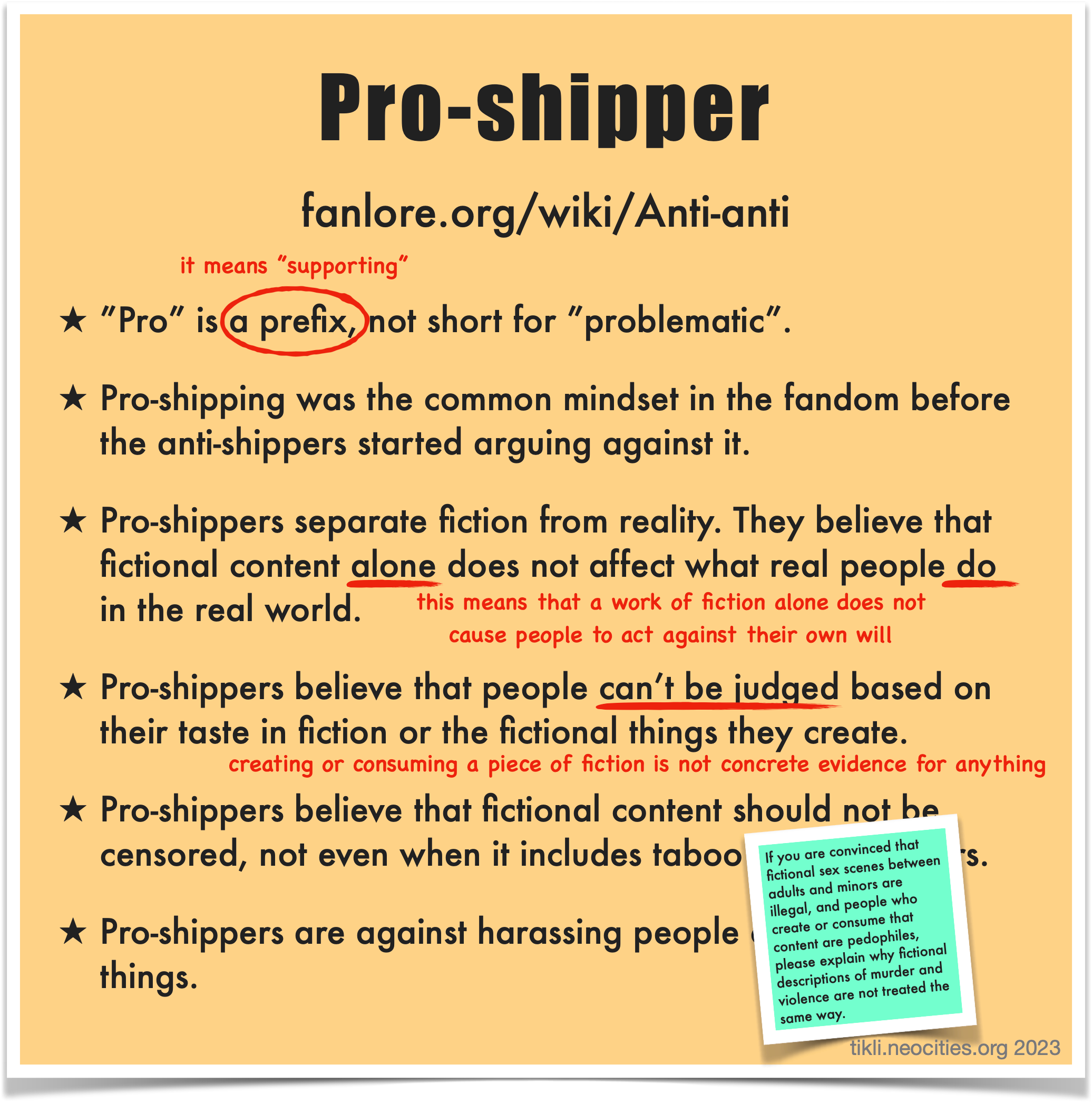
Canon
fanlore.org/wiki/Canon
- The word ”canon” originates from theology, meaning ”the foundational texts of a religion.”
- In fandom, canon refers to things that have been confirmed to be ”the truth” by the official sources.
- Canon is always based on an official source, but not all official sources are necessarily considered to be canon.
- The fandom can decide that some of the official sources aren’t authoritative enough to be acknowledged as a source of canon.
- The sources that are accepted as canon vary from fandom to fandom—and sometimes even within a fandom.
- As long as new source material is being created, the fandom has an open canon. When there are no expectations of getting any new source material anymore, the fandom has a closed canon.
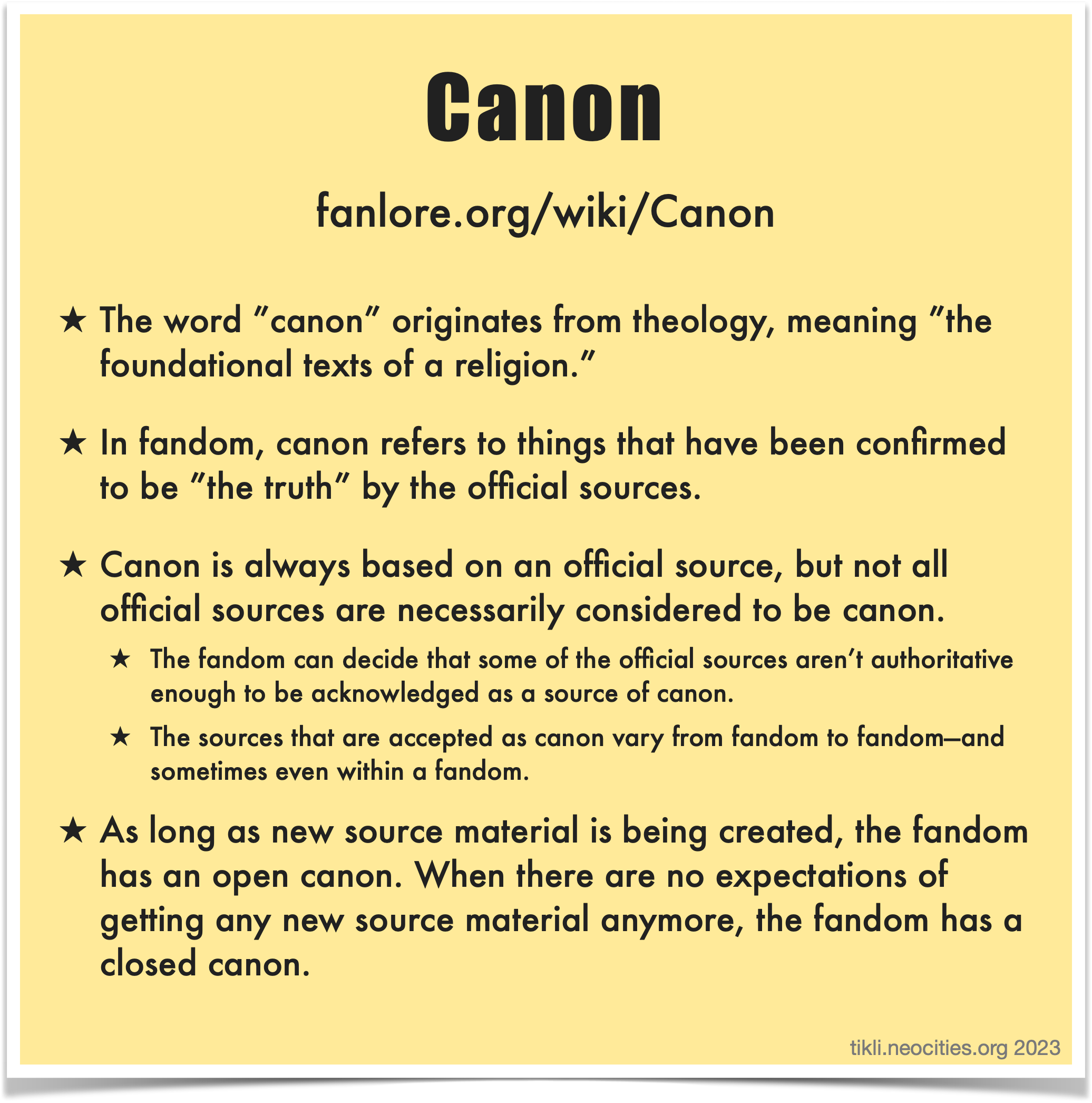
Fanon
fanlore.org/wiki/Fanon
- Fanon (fan canon) is something that fans are widely accepting to be ”true”, even when it has little or no basis in canon. For example:
- A collective interpretation/theory of a small canonical thing that grew much larger in the minds of the fans.
- Something that emerged from one fanfic and got repeated by other writers so often that it became ”common knowledge”.
- A convincing headcanon that gets very popular among fans.
- Characters can have fanon characterisations:
- Minor characters get more extended and fleshed out.
- Popular characters get more idealised and perfect.
- Unpopular characters get their flaws exaggerated and their strengths downplayed. They might be given completely invented bad characteristics.
- Fanon can become canon:
- Fans might correctly deduce what’s going to happen in the story.
- The creators might pick up something that’s fanon and make it canon.
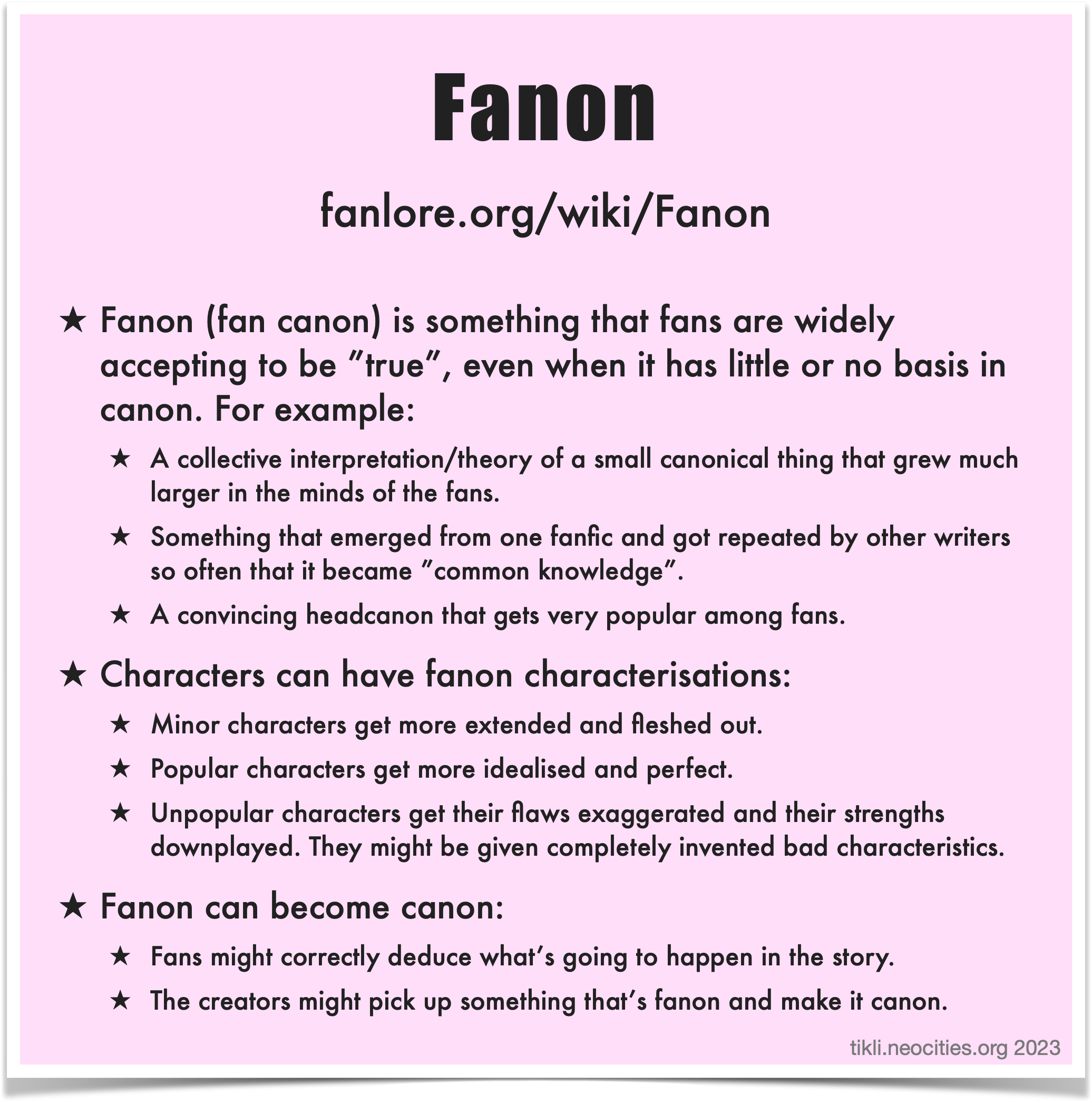
Headcanon
fanlore.org/wiki/Headcanon
- Headcanon (HC) is the enriched interpretation of canonical knowledge that exists inside a fan’s head. It can focus on characters, relationships, backstories, worldbuilding etc.
- HCs are personal, and it’s possible to have several HCs that contradict each other. Everyone is entitled to their own HCs.
- HCs can be canon-compliant extensions of the story. They can also contradict canon by modifying or rewriting it, leaving things out or adding them.
- HCs can be derived from canonical facts or they can be pulled out of a hat. HCs don’t have to make sense.
- Because HCs are a subjective figments of imagination, they aren’t ”right” or ”wrong”. Arguing about them is pointless and not as fun as sharing and cultivating them together.
